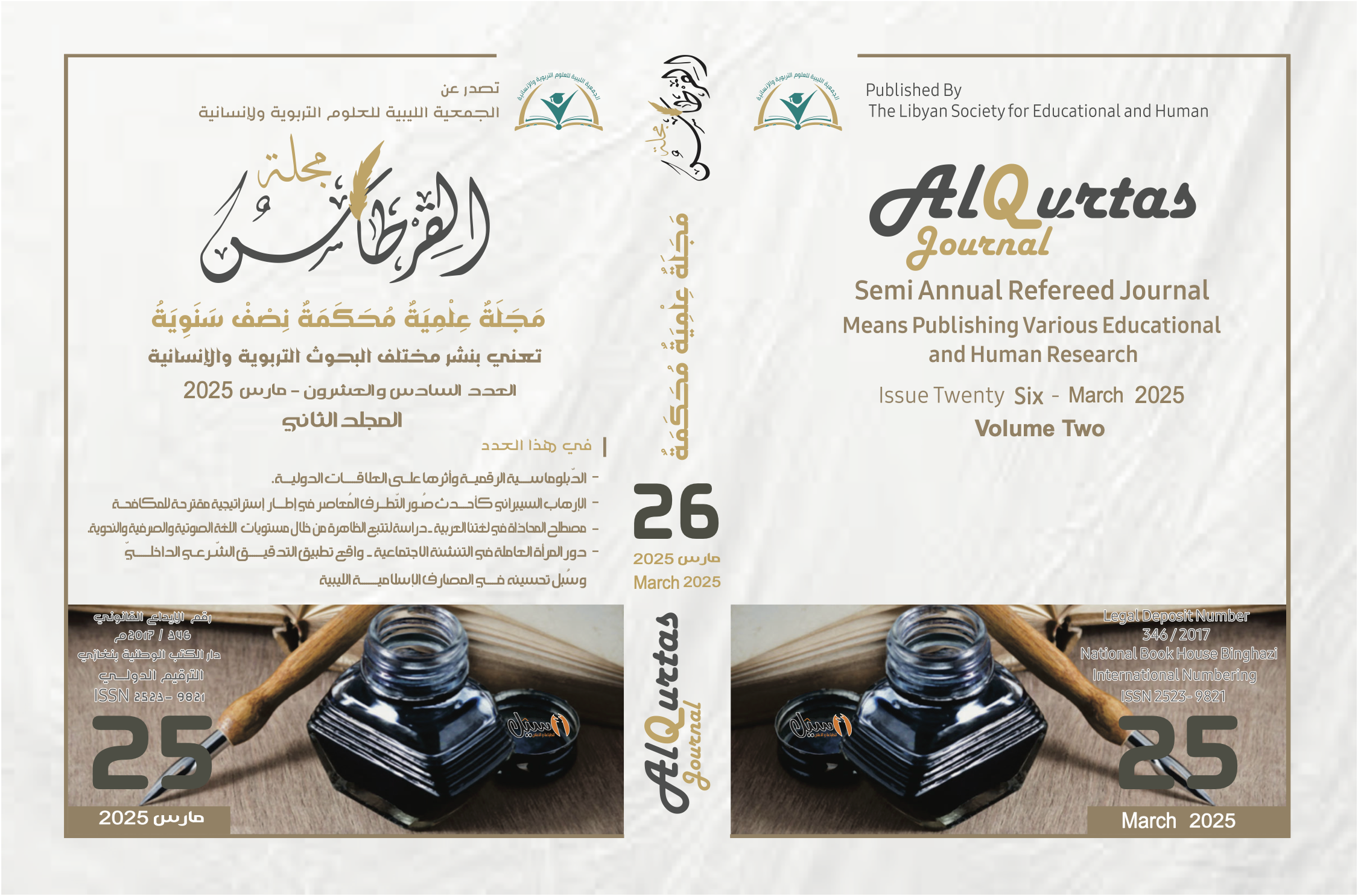التجربة الجزائريــــة لميثاق الســـلم والمصالحــــة الوطنية وإمكانية إسقاطها على الحالة الليبية مقاربة تحليلية
Main Article Content
Abstract
National reconciliation is an important milestone in the history of societies that have suffered from the scourge of civil wars and armed conflicts. Algeria suffered during the Black Decade from great tragedies and pains that led to the killing of tens of thousands of civilians, children and women, which caused major cracks in the Algerian social fabric. Libyan society also has suffered from a critical stage which characterized by many conflicts and wars in the period which following the February revolution. This research attempted to study and evaluate the Algeria's experience of national reconciliation and posed the major problematic which is: To what extent has the Algerian experience of national reconciliation succeeded in establishing peaceful coexistence in Algerian society? there are many subquestions branch out, from this main problematic like as: What is the concept of national reconciliation? How did the Algerian experience of national reconciliation succeed? Can the Algerian experience be applied and projected onto the Libyan case? This research aims to emphasize the important role which played by national reconciliation to achieving the transitional justice, establishing the values of peaceful coexistence, restoring the social fabric, and consolidating the rule of law. through the right of the individual to live in a society of security and peace, and the right of victims who were subjected to violence by perpetrators to redress the damage and approve appropriate compensation for them morally and materially. This research discussed these questions within four main axes and presented a conclusion that gathered all these axes and confirmed in its fourth axis that there are valuable opportunities that can be seized to achieve the success of the national reconciliation project in Libya, as the Algerian experience succeeded.

